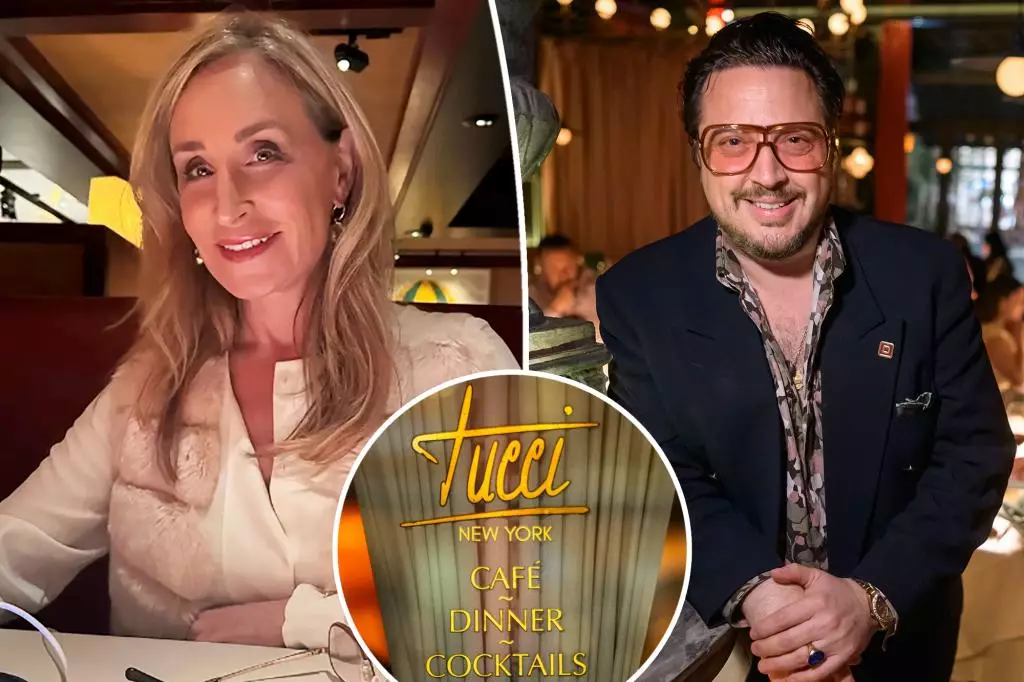Sonja Morgan, the former star of “The Real Housewives of New York City,” recently found herself at the center of a whirlwind of controversy after an extravagant dinner at the trendy Noho restaurant Tucci. What was intended to be a fabulous evening filled with camaraderie and celebration quickly spiraled into chaos when Morgan was presented with a bill nearing $1,000. The incident, which unfolded on a busy Saturday night, not only showcased Morgan’s sense of entitlement but also raised broader questions about dining etiquette among celebrities and the expectations placed upon restaurant owners.
The Miscommunication That Sparked Outrage
As the story goes, Sonja arrived at Tucci with a party of five despite reserving a table for just three. This initial misstep set the stage for what could be seen as a performative episode reminiscent of her time on reality television. According to sources, her reaction upon receiving the hefty bill was nothing short of dramatic; she vehemently insisted that she shouldn’t have to pay, claiming her celebrity status warranted complimentary dining. Such behavior, while not entirely uncommon among those in the limelight, raises eyebrows regarding the accountability of public figures.
What truly seemed to aggravate the situation was the alleged misunderstanding regarding the nature of her visit. Morgan later communicated to the media that she believed she had come to Tucci for a promotional partnership, which, if it were true, should have been established prior to her dining experience. However, the restaurant’s owner, Max Tucci, dispelled this notion, cementing Morgan’s misunderstanding as the crux of the entire debacle. His adamant stance—in defense of his staff and the restaurant’s integrity—was both surprising and refreshing, especially in an industry often marred by favoritism toward celebrities.
The Ripple Effects of Celebrity Entitlement
Morgan’s antics reveal a disturbing trend within celebrity culture where individuals often expect privileges as part of their public persona. The exchange between her and Tucci illustrates a fundamental disconnect between celebrity expectations and the operational realities of restaurants. With rising costs and limited margins aggravating the culinary industry, the demand for respect and fairness has never been more critical. Tucci’s decision to ban Morgan from his establishment signals a commitment to decency and professionalism, even when faced with the potential backlash of denying a public figure a free meal.
Moreover, it’s illuminating to consider how such incidents create a toxic cycle of entitlement among celebrities. It perpetuates a narrative that some believe they are above societal norms and can exploit their status for personal gain. Morgan’s insistence that “people pay me to go to their restaurants” epitomizes this attitude, showcasing her perception of worth tied to her fame rather than mutual respect between patrons and service providers.
While Morgan eventually settled her bill and returned to reality, her experience at Tucci remains critical in highlighting the delicate balance between celebrity and respect for the hospitality industry. The restaurant world, often a stage for nature’s finest performances, deserves acknowledgment that transcends mere fame, advocating for a culture of mutual appreciation, regardless of one’s social standing.
